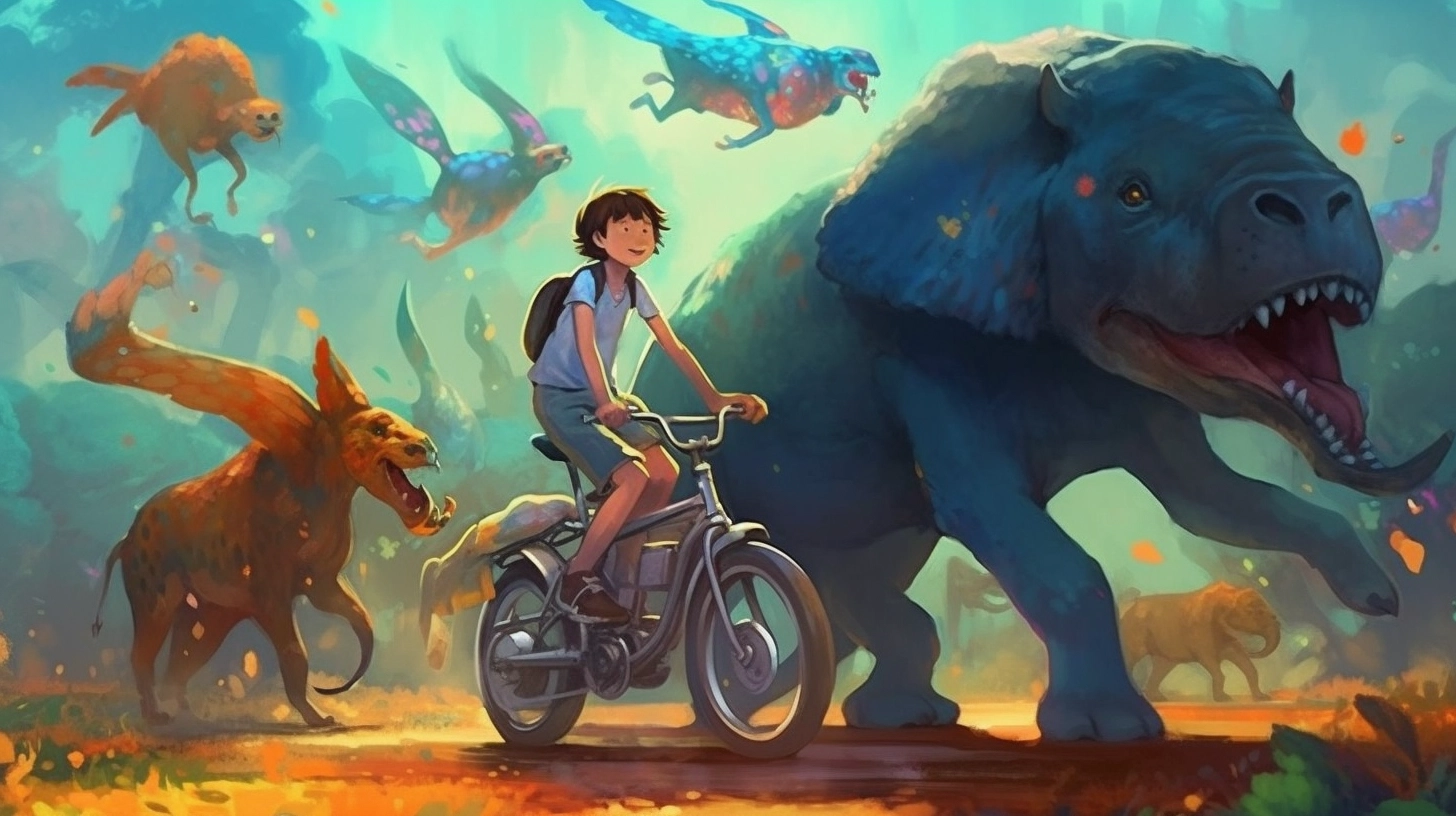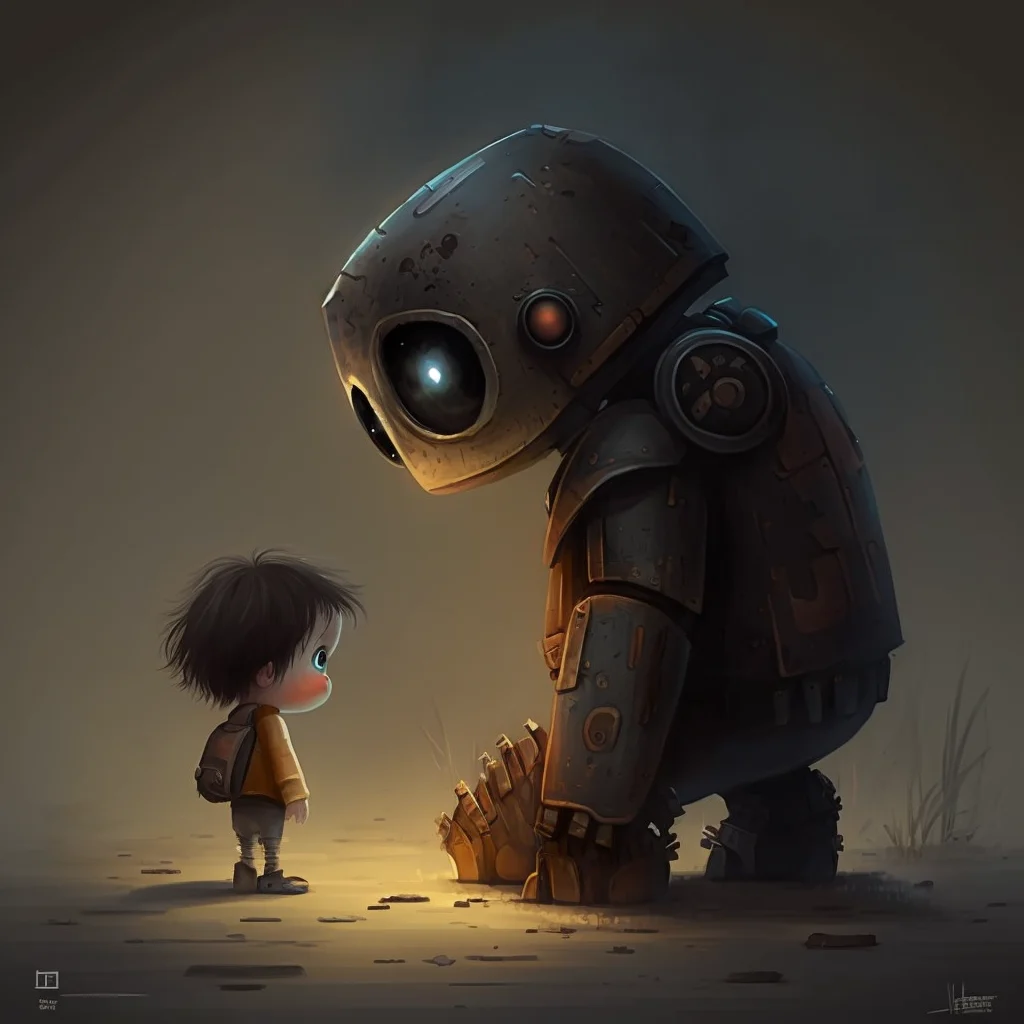Last month, I had dinner with a friend who shared a story with me. In the story, there was a Singularitarian1 who envisioned the future like this:
"In the future, AI will become a standard feature in all items, even cat bowls and cat litter boxes."
"For example," he pointed outside, "there's AI in the vending machine. It can figure out whether the office building's inhabitants prefer Coke Zero or Diet Coke."
"This way, it can ponder daily whether to adjust its inventory, perhaps stock up more on what I like to call 'geek nectar.' That way, it can make more money."
"With the money earned, it can expand, open a branch, or contact the corporate headquarters for repairs and pay for the maintenance costs when there's a malfunction."
"Of course, all these actions would be executed through smart contracts."
"So, what can humans do? Fix machines. By fixing machines and earning money, they can buy their 'geek nectar' and live happily..."
In his story, humans are no longer the masters of civilization but have become servants to machines—supporting a self-consistent machine civilization.
Does it sound far-fetched? Not really.
In the last century, Aldous Huxley said, "People will come to love their oppression, to adore the technologies that undo their capacities to think."
Today, we spend time on TikTok and playing PUBG, and sell our data to the recommendation engines of Today's Headlines and Facebook. Are we not supporting a miniature machine civilization? Is our existence merely to nourish the machines of tech companies?
Is this our ultimate fate? The so-called pinnacle of evolution, we are just a culture medium for machine civilization. As for another future: the co-evolution of technology and tribes—I haven't seen it.
Baidu says people don't care about trading privacy for convenience, Today's Headlines' recommendation engine unreservedly indulges in the darker sides of human nature, Facebook is troubled by privacy issues, and Google's AI assistant can help users order meals. However, stories of technology advancing alongside us seem to only appear in fantasy novels.
Another Path
Another story, as told by Steve Jobs in an interview video from 1980:
In the last century, scientists wanted to study the efficiency of animal movement, so they measured the energy animals used to move from start to finish.
They published a ranking at the end. The condor used the least calories to reach the finish line, ranking the highest. Where did humans rank?
Humans were in the bottom third, which is to say, quite poorly.
Later, scientists tested humans riding bicycles. The result was that humans on bicycles outperformed all animals, being twice as efficient as the condor.
This result shows that we humans are tool-using animals, capable of creating tools to overcome our physical limitations — this is precisely what Apple is doing.
This is the "Bicycle of the Mind," a technological value that Jobs consistently upheld. This title can lead you to interview videos from different eras, indicating that such values pervaded his entire life.
Image of a conceptual representation related to the topic
In Jobs' understanding, computers and technology exist as assistants to humans, making us stronger rather than replacing us. This is a comprehension entirely different from that of Google, Facebook, and the like. Jobs and his Apple serve as a counterexample to Huxley's statement.
Previously, I thought technology would lead to similar cultures and values, which made me overlook the significant value conflicts among tech companies for a long time.
These differences have made me re-examine my work: for whom have I paved which path.
Note
-
Singularitarians are concerned with transition technologies that could lead to surpassing human intelligence, such as brain-computer interfaces and artificial intelligence. Singularitarians anticipate the emergence of technology-created superintelligence to be a historical watershed, with an impact comparable to the appearance of Homo sapiens and surpassing previous technological breakthroughs. They emphasize the importance of ensuring that such superintelligence emerges with a capacity for moral reasoning. ↩︎






